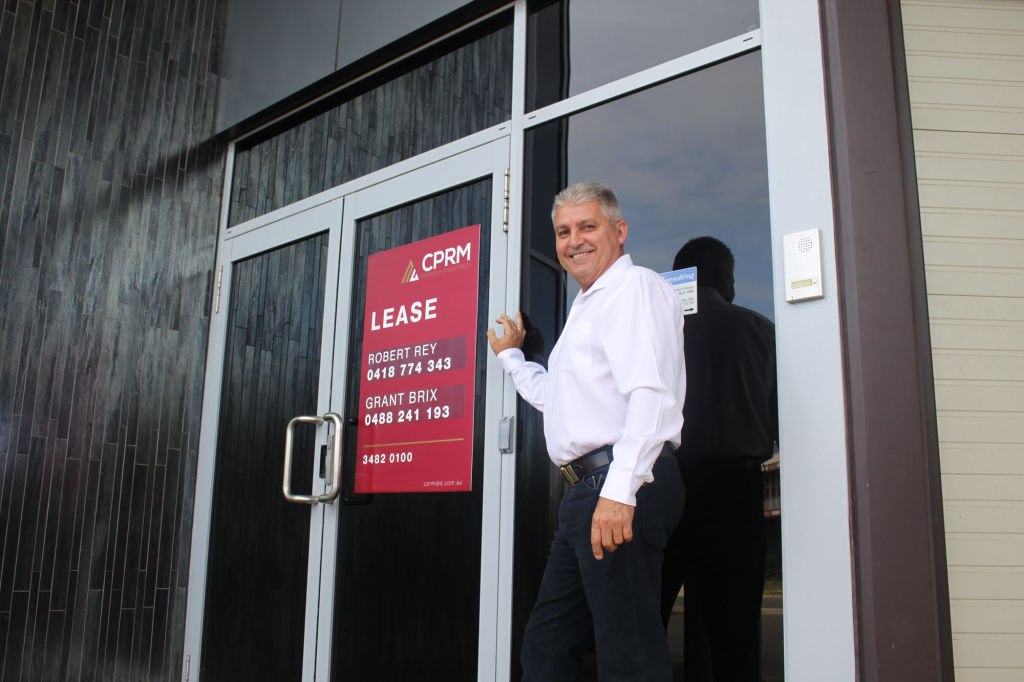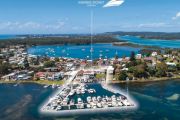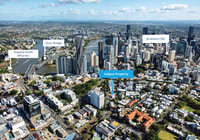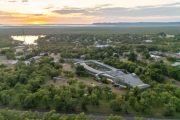
Brisbane agents tell how the COVID-19 pandemic has changed their working lives
Robert Rey, Principal/Managing director CPRM
In normal times, how do you spend your day?
The day before I always list what needs to be done the next day, with meetings, inspections and following up with existing and new clients. Every day I also try to spend at least an hour on current projects.
How has coronavirus impacted the office-leasing industry and your work?
It has put the brakes on leasing with tenants unsure of when they can return. However, some businesses are not affected as much as others and the inquiry is still there even though it is somewhat less. We have still managed to secure some good leases in government and other industries least affected by the closures. We need to just make a lot more calls and follow up as this situation won’t last forever. The inquiry we are getting is generally leading to a deal, which is saying that genuine tenants and buyers are still active in the market.
Do you believe it will have a substantial long-term effect, or will things, in time, return to how they were before?
This is the $64 million question. Our economy still must be driven by small business so we need to work with clients more now than ever to build a commercial market that can hopefully sustain the challenges that will be faced in the coming years.
Has your day changed much with changes in trends with office leasing?
Yes, definitely. Obviously the phone has gone a lot quieter so the level of inquiry is down, however, we’re using that time to go back through existing leads and also contacting clients and building stronger relationships. As agents, we need to work harder and smarter, clients need to know that we are focused and understand the challenges ahead and that we are working diligently to get the results needed in challenging times.
Are you substantially busier/less busy?
With inquiries down and the market in partial shutdown, inspections are not as frequent, however, in the past week I have managed to get two properties leased that have been vacant for years with no drop in leasing rate and little incentive. If you make the calls and follow up every lead, then there are still people out there wanting to get on with business. I have actually been busier now than prior to the pandemic happening.
Is the job harder?
No, I am actually enjoying the more consistent contact with owners and they are appreciating it. Our days are different, we still do the same things as we normally do just doing them in a different way.
What do you see as the challenges going forward?
The main challenge will be determining the effect that lease and sale prices will have on the market. With businesses possibly not re-opening, the level of stock will change and this will affect price. The retail and hospitality market will be affected the most and this area of leasing will see the greatest changes. I believe the aftershock will hurt more than the closure as some businesses will have to re-hire and re-train staff and effectively start their business all over again.
Has the relationship with clients changed?
Definitely, but increased communication has led to discussions on the current market and clients are keen to get my feedback on the changes that will occur. With over 20 years in commercial property and going through the GFC and other changes, clients relate to the challenges we will face and these discussions are vital to working through the current pandemic.
Have your clients changed over the years?
If your clients don’t change over the years, then I believe you will never grow as a company or as an agent. Of course, you always have your clients that you work with over long periods of time, but over the past five years I have developed strong relationships with new clients based more in the city and surrounds.
What have been the favourite projects you’ve worked on?
The best of the past five years has been Laguna North Lakes. A 1.72-hectare mixed resort-style development with a six-storey hotel combined with high-end retail, five-star restaurants, health and corporate office. Four years of planning and leasing strategies will lead to one of the region’s most iconic developments.
What’s been the most challenging task you’ve ever been faced with, and how did you manage it?
That would be talking to business owners who have suffered huge losses through COVID-19 and knowing that some might not recover if closed for six months. Listening to their pain and trying to give them support and confidence to get through takes its toll on you.
Michael Callow, national director industrial Queensland, Cushman & Wakefield
In normal times, how do you spend your day?
As an industrial sales and leasing agent, generally most of the day is spent speaking with tenants and owners and informing them of current opportunities and market activity/sales and leases so they are aware of any opportunities.
How has coronavirus impacted the industrial leasing industry and your work?
Tenants are unclear of what the landscape will look like in six months past the stimulus measures, so most companies have put plans on pause as opposed to cancelling them. That being said, we have still concluded a number of leases and sales that were in negotiation prior to COVID-19.
Do you believe it will have a substantial long-term effect, or will things, in time, return to how they were before?
There will be a substantial change from an industrial perspective as businesses will rethink their supply chain model and look to hold more inventory within Australia to meet demand, as opposed to relying on the backward pass and keeping inventory in China longer. Also, the transport and logistics sector will be affected in a positive way as the population has been forced to adopt online purchasing methods which will increase demand on smaller depots for more rapid deliveries of fast-moving consumer goods.
Has your day changed much with changes in trends with industrial leasing?
It has, as generally we are keeping businesses more up to date on current market specifics and movements and we are doing fewer inspections. But with restrictions easing, we anticipate returning to a more stable platform soon as businesses rebound.
Are you substantially busier/less busy?
We are just as busy but in different ways as the communication platform has changed from face-to-face meetings to online portals.
Is the job harder?
No, we’ve just had to adapt. It is harder not meeting with people as the social nature of the work is the most enjoyable part.
What do you see as the challenges going forward?
Being able to adequately forecast business requirements and therefore their size requirements. With the landscape changing so rapidly, companies will require shorter lease terms which has an effect on valuations for lessors on the other end. From an investment point of view, investors will be far more attracted to truly robust tenants and their ability to repel a downturn, so we think you will see a further
strengthening in yields based on covenant.
Has the relationship with clients changed?
It has. In the first chapter of my career, the relationship was based around single transactions, however now we generally work on our clients’ total portfolio and provide them with strategic advice on upcoming opportunities so they are well informed and can apply that to what works best for their business.
Have your clients changed over the years?
Initially, I was more private client-focused but I’ve been doing far more institutional work with REITs and global occupiers which has allowed me to gain a wider perspective of the markets. But I still manage a number of key private clients, which I enjoy as assisting them grow and sometimes stabilise their private portfolios through our superior market knowledge is rewarding.
What have been the favourite projects you’ve worked on?
Some of the most enjoyable were the Australia Post design and construct we completed last year with Goodman for 50,000 square metres as it was one where our market intel allowed Australia Post to make an informed decision quickly to meet deadlines. Another one was the sale last year of a 36-hectare parcel of land to Mapletree for $92 million, which will allow them to kickstart their development pipeline in Australia. My favourite though was probably a sale in 2007 of 8.5 hectares of land in Pinkenba for a private client right before the GFC for $18 million. That sale changed life for him and his family, so that was rewarding.
What’s been the most challenging task you’ve ever been faced with, and how did you manage it?
We assisted BP to relocate 4000 square metres of office of Bulwer Island very quickly as a result of a global directive to relocate out of the blast zone. At the time there was limited opportunity in the focus area so we had a developer take an existing facility and retrofit 2500 square metres of office into it in under six months, which was very quick. The entire negotiation process took three days to finalise a million-dollar-plus lease to a global covenant so we pretty much worked for 72 hours straight.










